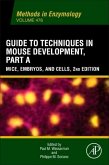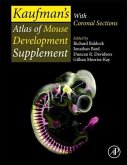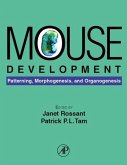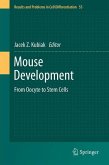Guide to Techniques in Mouse Development, Part B, is an authoritative guide to different methods used in enzymology, focusing on investigating mouse development using technological advances. The text provides information regarding the principles of the methods in mouse development, and it offers readers reliable experimental protocols and recipes described comprehensively by leaders in the field of enzymology.
The text is divided into three sections and organized into 25 chapters. Below are several concepts covered by the text:
Lentivirus transgenesis o Germline modification using mouse stem cells Electroporation Applications of transposons in mouse genetics Functional genomics using transposon systems The use of DNA transposons in detecting cancer genes in mice Recombination, conditional mutagenesis and induction of tamoxifen Genetic fate mapping using recombinases Genetic screens mouse ES cells Gene trap mutagenesis Mouse mutagenesis Self- renewal and pluripotency Transgenic RNAi applications Gene knockdowns Tetracycline-controlled transcription Gene expression profiling of mouse embryos
The book is a comprehensive guide for students and professionals in genetics, cytology and molecular biology, who will find this book invaluable for their learning and practice.
Hinweis: Dieser Artikel kann nur an eine deutsche Lieferadresse ausgeliefert werden.
The text is divided into three sections and organized into 25 chapters. Below are several concepts covered by the text:
Lentivirus transgenesis o Germline modification using mouse stem cells Electroporation Applications of transposons in mouse genetics Functional genomics using transposon systems The use of DNA transposons in detecting cancer genes in mice Recombination, conditional mutagenesis and induction of tamoxifen Genetic fate mapping using recombinases Genetic screens mouse ES cells Gene trap mutagenesis Mouse mutagenesis Self- renewal and pluripotency Transgenic RNAi applications Gene knockdowns Tetracycline-controlled transcription Gene expression profiling of mouse embryos
The book is a comprehensive guide for students and professionals in genetics, cytology and molecular biology, who will find this book invaluable for their learning and practice.
Hinweis: Dieser Artikel kann nur an eine deutsche Lieferadresse ausgeliefert werden.








